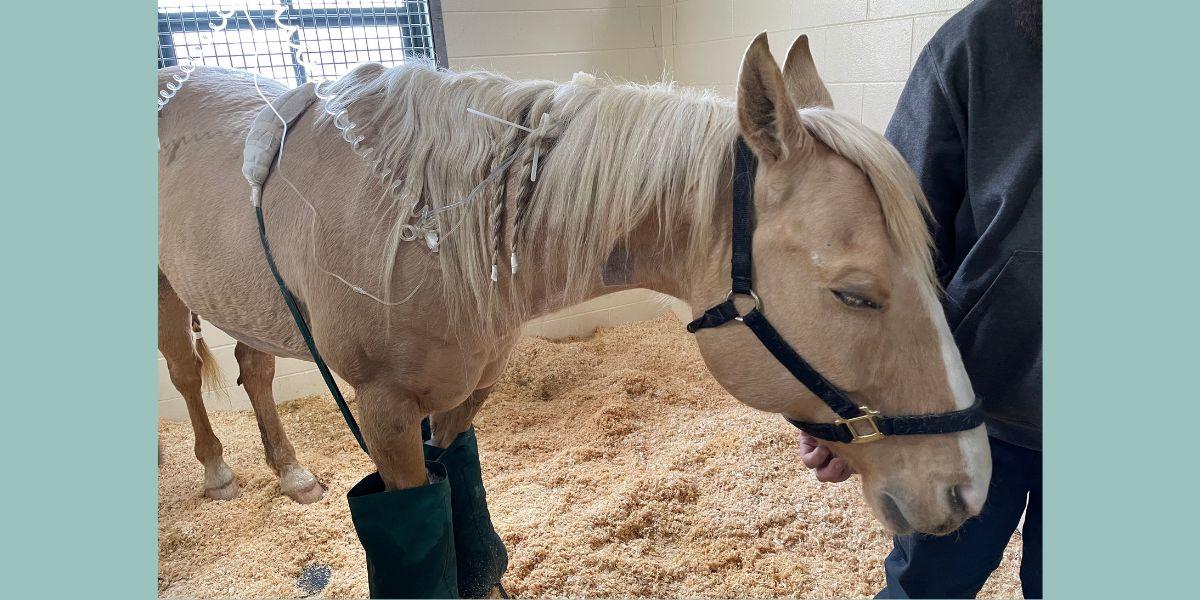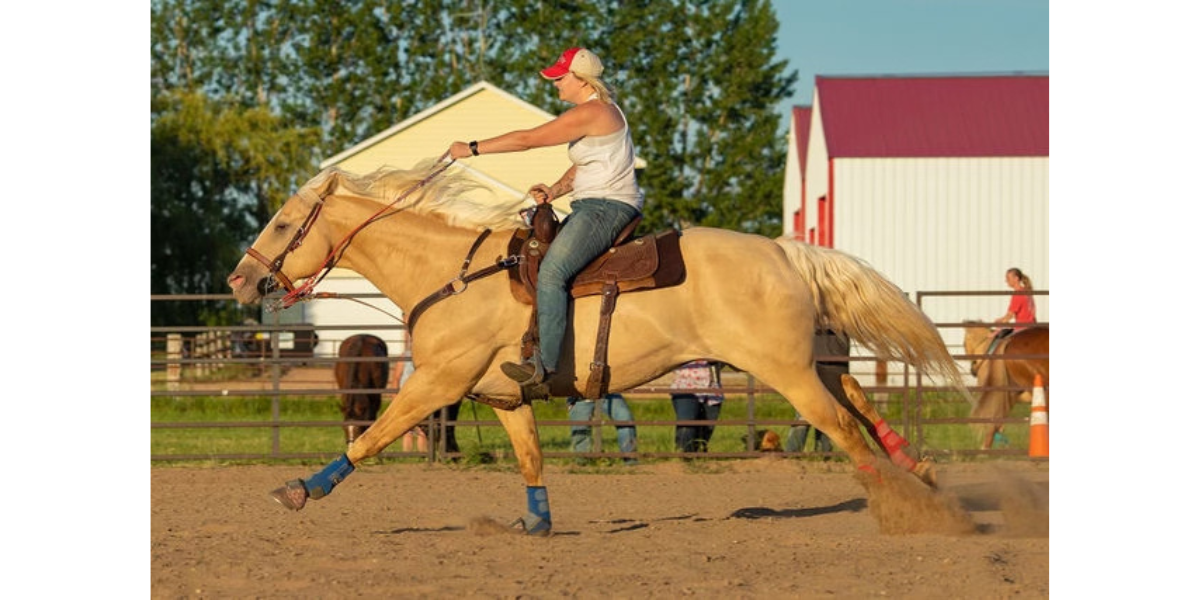The gift of life
VMC Companion Animal Fund helps make expensive care feasible for horse diagnosed with colic

VMC Companion Animal Fund helps make expensive care feasible for horse diagnosed with colic
Beau, a 10-year-old quarterhorse, receives treatment at the Piper Equine Hospital following colic surgery.
When Melissa Neitzke pulled into her driveway in the middle of a particularly freezing early March 2022 night, she raced to the stable where her 10-year-old quarterhorse gelding, Beau, was laying in a stall.
Her sister had called her home when Beau wouldn’t eat or drink. He pawed at the ground and kept trying to lie down. When Neitzke arrived, Beau had broken into a sweat, and his stomach was bloated. She had called Beau’s regular veterinarian, who arrived at the stable in Mound, Minn., within 20 minutes of Neitzke’s call.
As soon as she inserted a nasogastric tube––a catheter inserted into the stomach through the nose––green bile immediately funneled up from Beau’s stomach. It was clear he had severe colic.
“She knew it was bad from the get-go and waited a couple of minutes after the bile came up before she said we should take him to the U,” Neitzke says.
The three women were able to get Beau into a trailer. In the middle of the night, Neitzke called the University of Minnesota Piper Equine Hospital during the 35-minute drive to St. Paul to let them know she was on her way.
“It was the worst car ride. I thought I might get there and open the trailer, and he might not even be breathing,” Neitzke says.
When she opened the door, Beau was more alert than he had been at home. The tube had relieved some of the bloating in his abdomen, but when resident Dr. Kaitlin Mielnicki and Dr. Christine Ward, assistant clinical professor in the Department of Veterinary Population Medicine, examined him, it was clear Beau wasn’t going to get better without surgery.

When Neitzke is faced with any decision, she asks herself if she will feel regret after making each of the decisions. The team expected an 80 percent survival rate with surgery, but the operation was intensive and would be expensive.
“He’s a part of my family,” Neitzke says. “He’s the best horse I’ve ever owned.”
She maxed out her care credit and put the rest of the deposit on her credit card, which was at its limit.
Colic surgery costs about $10,000 without complications––which wasn’t the case for Beau. The operation revealed two obstructions, one in his large intestine and one in his small, which is uncommon. The team was able to remedy the obstructions, but Beau suffered a kidney injury from the amount of reflux he was having both before and after surgery. The treatment for kidney injury is IV fluids––lots of them.
“These complications add up. They were stretched by that point,” Mielnicki says.
Neitzke remembered how realistic Mielnicki was about how much the care would cost, but also how helpful she was with finding a solution. Mielnicki told Neitzke about the VMC Companion Animal Fund (CAF) and applied for a grant on Beau’s behalf.
“I was at the brink of as much as I could do, if I didn’t have that grant, I don’t know what I would have done,” Neitzke says.

Now, just over a year after recovering from successful colic surgery, Beau is gearing up for the barrel racing season. He’s a gentle giant unlike any Neitzke, who grew up with horses and whose father was an equine veterinarian, has ever had. And thanks to CAF, Beau’s coming into his season in great health.
“That grant has allowed us to treat patients that may otherwise be euthanized for a treatable disease because the owners can’t afford to treat it,” Mielnicki says. “It’s life-saving.”
About the VMC Companion Animal Fund
The VMC Companion Animal Fund provides financial assistance to clients who cannot afford necessary veterinary care for their companion animals. If you'd like to support the care of animals like Beau, please visit the Companion Animal Fund page to give.